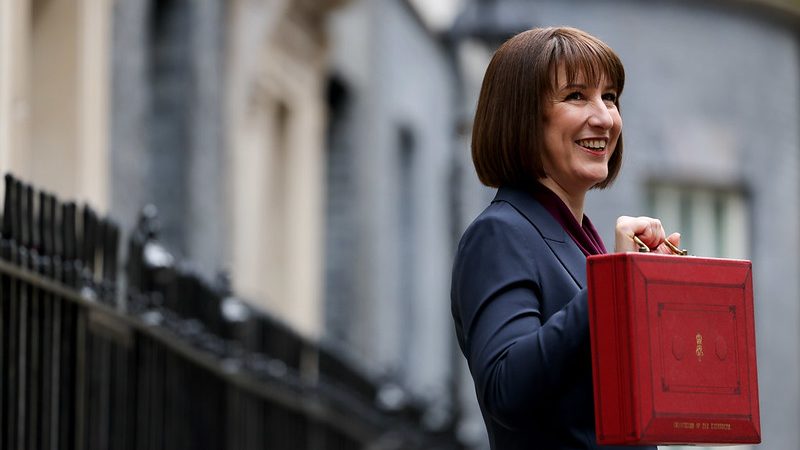
“Lots of messages in my Constituency Labour Party WhatsApp saying they are looking forward to canvassing this weekend much more now,” one MP told LabourList in the immediate aftermath of Labour’s first Budget since 2010.
Labour’s £70bn hike to public spending over the next five years – and the tax hikes and borrowing that will fund it – may ruffle feathers on the right, but it has given many on the left a spring in their step after more than a decade of austerity – and months of gloomy messaging from ministers.
One new MP dubbed it a huge success, “nowhere near as gloomy as people were predicting – a proper Labour budget”.
The New Statesman‘s George Eaton called it a “redistributive statement”, The Times’ Patrick Maguire dubbed it “workerist”, and the MP Melanie Ward said charts like the below showed “the difference that a Labour government makes”:
Who benefits from @RachelReevesMP Budget? And who is hit hardest? Have a look: pic.twitter.com/70qQTL08Sn
— Paul Mason (@paulmasonnews) October 30, 2024
LabourList readers and unions impressed by the Budget
More than half of around 200 readers who voted in our informal snap poll rated the Budget “better than expected”, and less than one in 10 said it was “worse than expected” – albeit partly reflecting just how bleak Labour’s pre-Budget messaging had been.
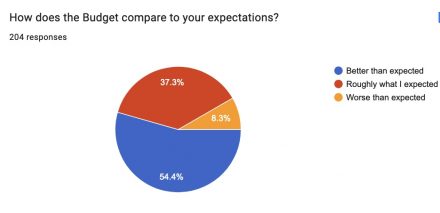
Around two-thirds said they felt “positive” or “very positive” about the Budget, with fewer than one in five “negative” or “very negative”.
Among the most common words used by those who left comments about what they liked most were “tax”, “investment”, “NHS”, “housing”, the minimum wage and “spending’.
Some 58% said it struck the right balance between tax, spending and borrowing.
Several unions also welcomed the Budget’s tax hikes, with the Fire Brigades Union welcoming the windfall tax on oil and gas and VAT on private school fees . The TUC’s Paul Nowak said tax rises ensured “much-needed funds”, and those with broader shoulders paying “a fairer share”.
Unite’s Sharon Graham called it a “misstep” that Reeves had not gone further to “ensure the super-rich pay their fair share”, however, through a 1% tax on the richest 1%.
MPs delighted by minimum and living wage hike – and small business support
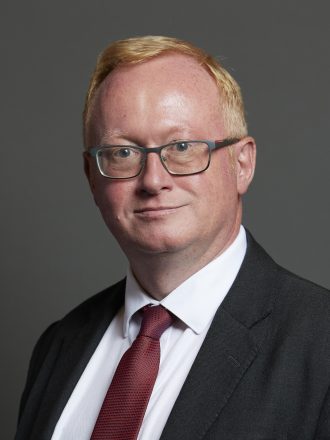
Every MP LabourList spoke to shortly after the Budget highlighted the significance of the record hike to the national minimum and living wages.
“In July, I stood on a manifesto pledge to Make Work Pay. This 6.7% rise in the National Living Wage and a record rise in the minimum wage for 18-20 year olds will put money in the pockets of more than 8000 low paid workers in my area of Fife,” said Ward, MP for Cowdenbeath and Kirkcaldy.
County Durham MP Luke Akehurst made a similar point about the thousands of his constituents who would benefit, noting it meant a £1400 boost for a full-time worker.
Chris Webb, MP for Blackpool South, said it would be “massive” for constituents who “count the pennies”, and the rise was big enough to have real cut-through.
“What I was really pleased by, and never thought possible, was the lower rate rise for younger workers – the amount who have told me they feel exploited, they’ll find moving towards parity hugely welcome.”
Beccy Cooper, new MP for Worthing West, said such measures made this the “first Budget in over a decade that is unambiguously on the side of working people”.
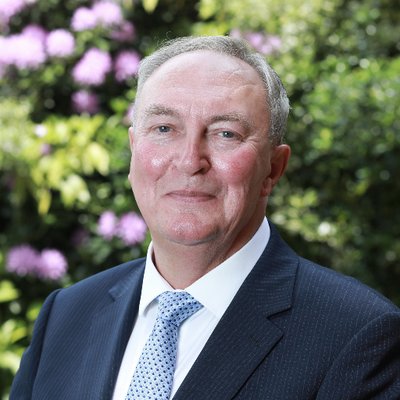
There was also contentment among several MPs about Labour balancing out such measures with some support for firms.
Webb, chair of the all-party parliamentary group on hospitality and tourism, said Labour’s tax measures to support hospitality and leisure firms, as well as some relief for smaller firms from its employer NI hikes, were welcome too. “It shows Labour is pro-business as well as pro-worker, and it puts investment into the high street.”
He said retailers locally would similarly welcome investment in tackling shoplifting, with small firms telling him “crime is one of the biggest issues”.
Paddy Lillis, general secretary of the large Labour-affiliated shopworkers’ union Usdaw, agreed. He said measures would “help save our shops and retail jobs” to ensure job security alongside a welcome “path to a genuine legally binding real living wage”.
NHS cash ‘just what first-time Labour voters wanted’
One new MP in a marginal seat said the £22.6bn investment in the NHS was “just what people who voted for us for the first time in 2024 will want to see – and we’re only getting started”.
That and wider investment in the economy put “the wind in the sails of the government as we press on with our mission of change”.
Another MP made a similar point that it is a “Budget that supports what people value in their community”, through not just NHS investment but also cash for schools and support for high streets and pubs.

Cooper, a public health doctor by background, said she was “particularly delighted” by the NHS funding, calling it a “transformational increase”.
“I hope to work closely with colleagues on a plan to move the NHS from hospital to community, from analogue to digital, from treatment to prevention,” she added.
Webb said it was “vital” for areas like Blackpool, with local A&E services often overstretched amid huge deprivation, severe mental health problems and millions of visitors each year to the seaside town. “It’ll make a huge difference,” said the MP, previously chair of a mental health charity.
Graham said extra cash was “much needed”, and changes Unite had called for to the “borrowing straitjacket” for were “welcome”. She said scanners “need people to use them”, however, noting NHS recruitment challenges.
Miners’ pension funding and school breakfast club cash win praise
Several MPs singled out a tripling in funding for school breakfast clubs and support for former miners for praise, in two moves likely to benefit many Labour MPs’ constituents in more deprived areas.
“I’ve argued for years we should turn the page on a system that’s not working for so many communities, particularly post-industrial ones – and this Budget’s a step towards that,” said Hemsworth MP Jon Trickett.
“I particularly welcome in my constituency the decision on the miners’ pension scheme, putting significant money into the pockets of those who did so much to produce the wealth of this country.”
Akehurst also added: “I am particularly pleased that former mineworkers will receive £1.5bn of money that has been kept from their pensions. This will mean substantial pay-outs for many of my North Durham constituents.”
Concerns over public services and two-child cap
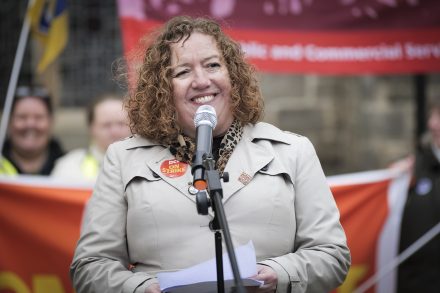
Some 27% of LabourList readers said the Budget didn’t strike the right balance between tax, spending and borrowing, however – and argued Labour should be taxing more to fund services.
Almost half of those polled said the Chancellor should have done more to raise funds through taxes on wealth, on top of measures announced such as inheritance tax and capital gains tax hikes.
Trickett said that extra funding for public services was “welcome”, but said there was still “a lot more to do” overall.
He noted the Budget’s implications for every department’s budgets beyond several highlighted by the Chancellor – such as health, education and defence – were not immediately clear from her speech.
“Some neutral observers are saying its eye-wateringly tight, and it does look it.”
The Labour-affiliated FBU’s general secretary Matt Wrack said increased public spending should “ease some pressures”, but the government must go “further and faster”, saying fire and rescue services had lost 30% of their funding from central government since 2010.
The Public and Commercial Services Union’s general secretary Fran Heathcote claimed the Chancellor “seems to have given with one hand while taking away with the other” by including a 2% savings target for departments alongside a 1.7% increase in cash.
One MP also said they were “disappointed” not to hear more said on child poverty or compensating WASPI women, warning campaigners on the latter – protesting outside Parliament today – were “not going away”, and that the two-child cap row could rumble on for another year. Not signalling some progress on the two-child cap is a “huge misstep”, they added.
But another MP was much more positive about public spending overall, adding: “The weeks of stories beforehand suggested massive cuts to public services and spending, instead we have a Budget for long-term economic growth and which gets to work rebuilding our services and infrastructure.”
Ward noted that Labour had delivered the “largest funding settlement for the Scottish Government in the history of devolution”, putting the onus on the Scottish Government to now deliver “desperately needed improvements in the Scottish NHS”.
Read more of our Budget 2024 coverage:
-
- Live updates and stream as tax and spend policy revealed
- Labour’s Budget 2024: All the policies announced in advance
- ‘No fiscal rule is perfect. But this one means welcome investment’
- Fiscal rules: What is Reeves changing – and why does it matter?
- Bus fare cap row rumbles on as Burnham sticks to £2 cap
- Sam White: ‘Budget 2024 leaves Reeves facing nine circles of fiscal hell’
- Budget bus fare row: ‘The £2 cap was a rare policy that dramatically improves lives – it’s so cheap people talk about it’
- Budget 2024: National Minimum Wage set for record hike and Living Wage to rise 6.7%
- Budget 2024: ‘How Rachel Reeves will turn the page on the Tories’ economic illiteracy’
- ‘How Labour councils can help Starmer and Reeves deliver their growth mission’
- Who key Budget policies are aimed at – and the electoral strategy they signal
- SHARE: If you have anything to share that we should be looking into or publishing about this story – or any other topic involving Labour– contact us (strictly anonymously if you wish) at [email protected].
- SUBSCRIBE: Sign up to LabourList’s morning email here for the best briefing on everything Labour, every weekday morning.
- DONATE: If you value our work, please donate to become one of our supporters here and help sustain and expand our coverage.
- PARTNER: If you or your organisation might be interested in partnering with us on sponsored events or content, email [email protected].




More from LabourList
Josh Simons resigns as Cabinet Office minister amid investigation
‘After years of cuts, Labour’s local government settlement begins to put things right’
‘The Sherriff of Wild Westminster: what must change in elections bill’